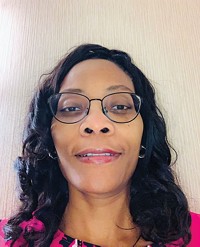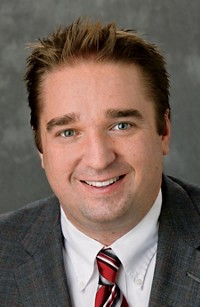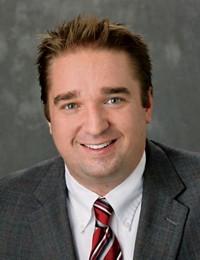Advertisement
Grab your lab coat. Let's get started
Welcome!
Welcome!
Create an account below to get 6 C&EN articles per month, receive newsletters and more - all free.
It seems this is your first time logging in online. Please enter the following information to continue.
As an ACS member you automatically get access to this site. All we need is few more details to create your reading experience.
Not you? Sign in with a different account.
Not you? Sign in with a different account.
ERROR 1
ERROR 1
ERROR 2
ERROR 2
ERROR 2
ERROR 2
ERROR 2
Password and Confirm password must match.
If you have an ACS member number, please enter it here so we can link this account to your membership. (optional)
ERROR 2
ACS values your privacy. By submitting your information, you are gaining access to C&EN and subscribing to our weekly newsletter. We use the information you provide to make your reading experience better, and we will never sell your data to third party members.
Comment
ACS Project SEED: The next 50 years
by Don Warner, Chair, Committee on Project SEED
September 14, 2019
| A version of this story appeared in
Volume 97, Issue 36

The American Chemical Society Committee on Project SEED has found 2019 to be both exciting and challenging. We started the year full of energy and enthusiasm that was fed by the success of the many events celebrating the program’s golden anniversary, but we had to grapple with new challenges as we entered the program’s second 50 years.
To refresh your memory, Project SEED seeks to encourage high school students from economically disadvantaged households to enroll in baccalaureate programs in chemistry and related disciplines by offering paid, full-time summer research experiences. Additionally, the program offers several scholarships, both onetime and ongoing, to former SEED students for their college tuition and expenses.
We closed the 50th year of Project SEED with several celebrations and a successful fundraising drive. At the ACS national meeting in Boston in fall 2018, the committee organized a symposium that effectively demonstrated the importance of the program. We learned, for example, that Project SEED encouraged a troubled teen to enroll in college and successfully complete postbaccalaureate schooling, and it also provided an initial exposure to chemistry research for several individuals who ultimately attended college and went on to become senior scientists and CEOs at chemistry-related companies. For me, one of the most impactful success stories involved five children in the same family participating in Project SEED. The eldest participated to help pay for food and other family expenses. Because of this, the four other siblings signed up for Project SEED, and all five siblings attended college.
Project SEED’s 50th anniversary also saw the 50 Forward fundraising campaign that sought to increase the endowment that helps cover stipends for the summer research students. At the close of the campaign, the endowment was increased to just under $8.8 million with an additional $1.4 million in estate intentions. The efforts of the ACS Development Office and Project SEED champion Sir Fraser Stoddart were nothing short of incredible. It was inspiring to see professor Stoddart interact with the SEED high school students from what seemed like dawn to dusk, and I know that the students were very appreciative.
The start of 2019 was bittersweet for the committee. While we were excited to begin the second 50 years, the committee also saw the retirement of ACS staff members Cecilia Hernandez and Raihanah Rasheed, who have been the heart and soul of Project SEED for so many years. The tremendous time, energy, dedication, and drive exhibited by these two individuals are amazing. The committee looks forward to working with Racquel Jemison, our new staff liaison, and the exceptionally talented team that has been assembled to strengthen the Project SEED programs.
To continue to build for the next 50 years of Project SEED, the committee sought opportunities to address contemporary challenges facing local sections and research sites that seek to host high school students through the SEED program. We extensively surveyed site coordinators and research mentors to identify aspects of the program that are working well and to seek opportunities for improvement. We learned, for example, that students who participate are incredibly appreciative and recognize the overall benefits and opportunities afforded through the program. However, coordinators and mentors described an increase in administrative workload as a result of policies implemented to protect minors working in research labs. Additionally, mentors and coordinators have stated that recruiting students has become more challenging as entry-level jobs have increased their hourly rate at a pace that the SEED stipend has not matched.
In an effort to address these challenges, the committee participated in a strategic planning retreat to identify goals for the next several years. Our new vision is “empowering students through transformative research experiences,” and our mission is “to ensure the quality, sustainability, and growth of the Project SEED programs.”
We agreed on three goals: foster the sustainability of Project SEED; identify and establish working relationships with stakeholders to promote growth; and identify, implement, and promote essential elements of a high-quality SEED program. To achieve these goals, strategies include piloting and launching flexible program models for SEED research students, working with the ACS Development Office to ensure a strong financial future, cultivating partnerships with stakeholders to promote growth, updating the underlying technology platform, improving assessment strategies, and actively promoting the sharing of best practices among mentors and coordinators.
Finally, in the first summer of research in Project SEED’s second 50 years, we placed more than 450 students in research laboratories across the country. We think this may be a record number of students. Further, we received $500,000 from the estate of 78-year ACS member Joseph D. Loconti, which allowed us to establish a new, renewable scholarship endowment. This summer, the very first Loconti Scholar was selected. Project SEED is continuously seeking opportunities to include more high school students. This requires volunteers (like you!) to serve as research mentors and coordinators. We also ask that you please consider donating to Project SEED, especially when renewing your ACS membership.
For more information about Project SEED, or to learn how to donate to this valuable program to support its next 50 years, visit the Project SEED website at www.acs.org/projectseed.
Views expressed are those of the author and not necessarily those of C&EN or ACS.





Join the conversation
Contact the reporter
Submit a Letter to the Editor for publication
Engage with us on Twitter